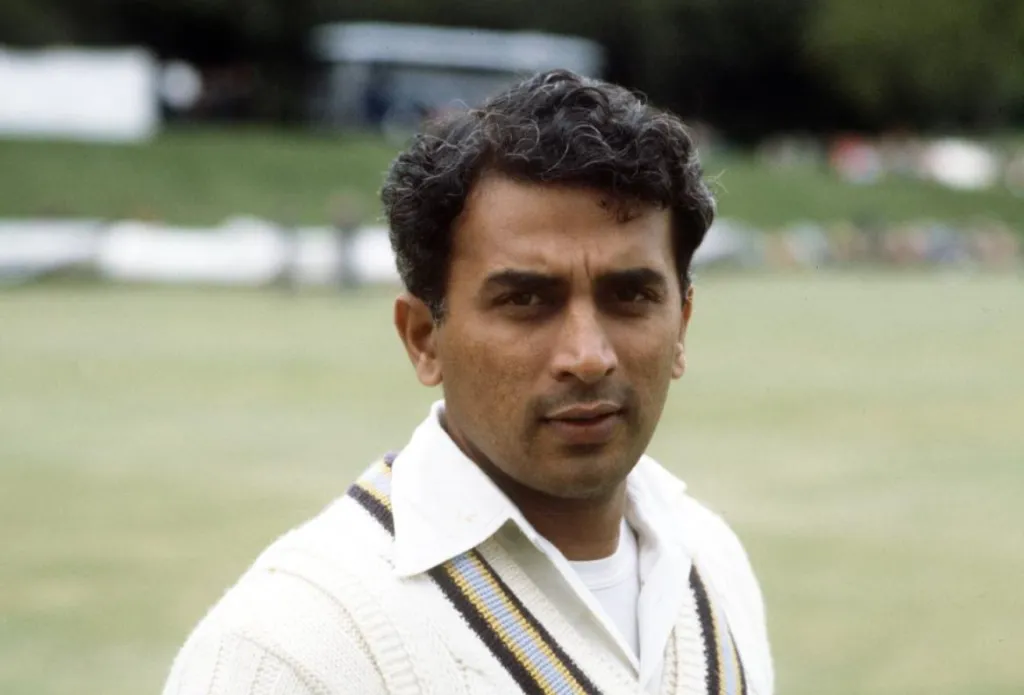From the early days of Indian cricket, there were never a dearth of cricket stars and superstars. There was CK Nayudu, the father of Indian cricket, followed by Vinoo Mankad, the supreme all-rounder, Mansur Ali Khan Pataudi, who brought a touch of royalty in Indian cricket, and the spin quartet who used to create a web of spin against the overseas batsmen in all conditions. However, despite these greats and some of their individual brilliant performance, India lacked true success in international cricket till the 70s.
Even the popularity and appreciation of the game were also mixed with the public considering this to be a boring game for rich people and did not expect much success, especially during overseas tours. Survival was the key and the success were few and far between.
But everything changed almost 50 years back with the entrance of a relatively short, cheerful Indian opener named Sunil Gavaskar. It is no coincidence that India started to get overseas success from the very first year of Gavaskar’s career and started to challenge more and more teams both home and away. In fact, his astute batting at the top of the order built on solid defence provided the confidence to the rest of the team to dream of reaching greater heights.
Gavaskar, who was born on July 10, 1949, in Bombay (now Mumbai) made his name through university-level cricket and Ranji Trophy. After playing First-Class cricket for 2-3 years Gavaskar was first selected in the Indian team touring to West Indies under the captainship of fellow Mumbai player Ajit Wadekar.
Gavaskar missed the first Test due to an injury and made twin fifties on his debut Test match at Queen’s Park Oval at Port of Spain. This was India’s first-ever Test win over the mighty West Indies. Gavaskar went on to a run-spree and scored 116, 64*, 1, 117*, 124, and 220 in the next three Test matches. India won the series and Gavaskar finished his debut international series with 774 runs, still a world record. It was followed by India’s first-ever series win in England and Gavaskar played an important role.

Source: Twitter (ICC)
This was the start of greatness for Sunil Gavaskar and Indian cricket. For the next 16 years, Gavaskar achieved all possible batting records and helped India to get success at the world stage multiple times.
In 1987, he became the first-ever batsman in the history of Test cricket to reach the landmark of 10,000 runs and finished his career of 125 Tests with 10,122 test runs. He also broke Don Bradman’s long-standing record of 29 Test centuries and finished with 34 Test centuries, a world record at that time. 13 of those hundreds came against West Indies, arguably the best team of that era marking the stamp of authority the ‘Little Master’ had on those great bowlers.
Gavaskar also recorded eight Test centuries against Australia, five against Pakistan, and four against England helping India to many memorable wins. His record of scoring twin centuries in a Test match three times is only matched by Ricky Ponting and David Warner to date.
By this time, one day cricket started to grow, and although Gavaskar was not a big supporter of this new format he slowly adapted to it and was also became successful in the limited over format. On the opening day of the 1975 World Cup, Gavaskar created a huge controversy when he batted for full 60 overs scoring just 36 runs, and did not even try to chase the total set by England. But later Gavaskar became part of Indian cricket’s folklore for being part of India’s first World Cup-winning squad in 1983.
Two years later Gavaskar led the team to another big triumph when India emerged victorious in the 1985 World Series of Cricket in Australia. During the 1987 World Cup Gavaskar scored his only ODI hundred with some brilliant stroke play.

Source: Twitter (ICC)
Even outside the cricket ground, Gavaskar made a big impact in the overall cricket universe. With Kapil Dev and Imran Khan, Gavaskar enhanced the reputation of the sub-continental teams during the 80s and also made cricket hugely popular in those parts. Till then the world cricket was mostly controlled by powerful countries like England and Australia. But Gavaskar played a key role in bringing more focus on Asian countries and their players.
He never backed off from taking a tough decision and support his team-mates. In one of the most controversial moments of his career, Gavaskar walked out in protest of a wrong decision given by the Australian umpire during the 1981 MCG Test.
Post his cricketing career, Gavaskar remained in touch with the game and is now considered as one of the more reputed cricket commentators with more than 30 years of experience. One of the greatest tributes was given to him by Indian and Australian cricket boards in 1996 when the Test series between these two teams were named after Sunil Gavaskar and his friend and long-time opponent Allan Border. Fittingly, two of the best cricketing nations fight it out often for the most coveted Border-Gavaskar Trophy since then.

